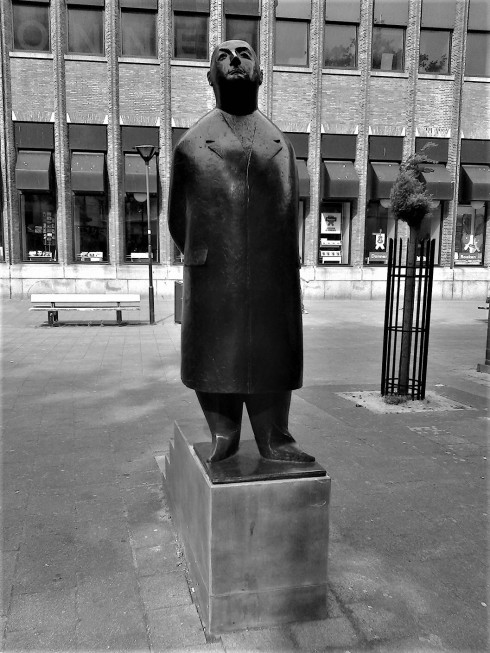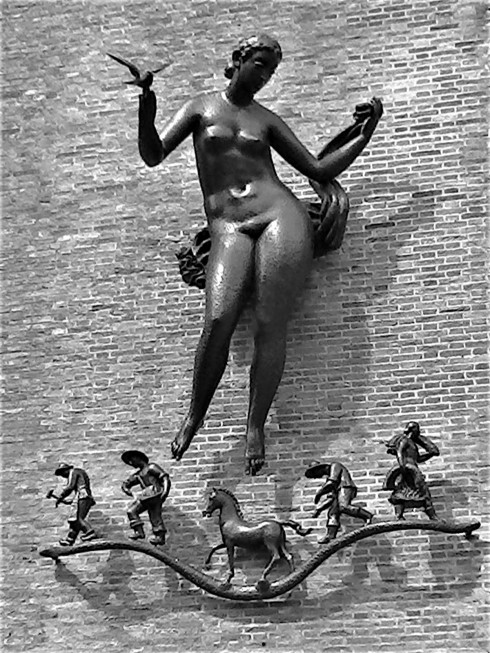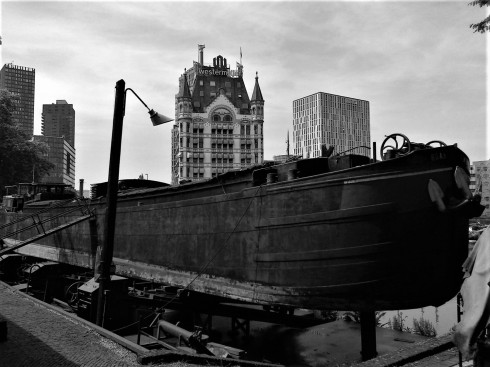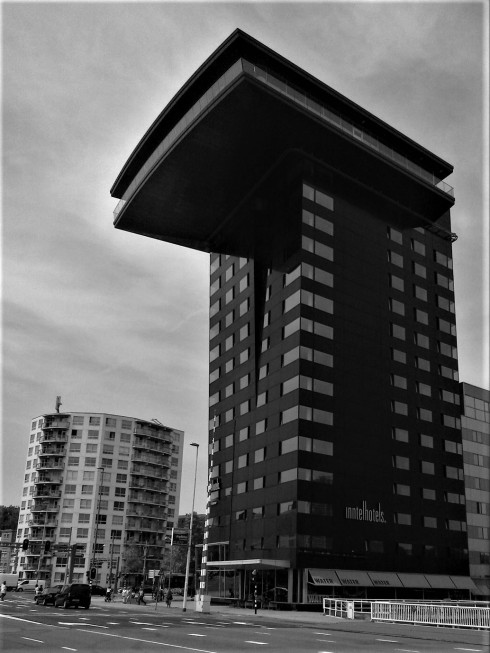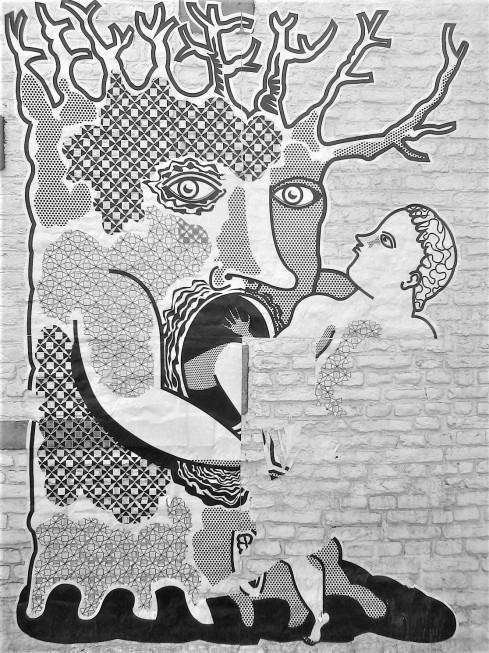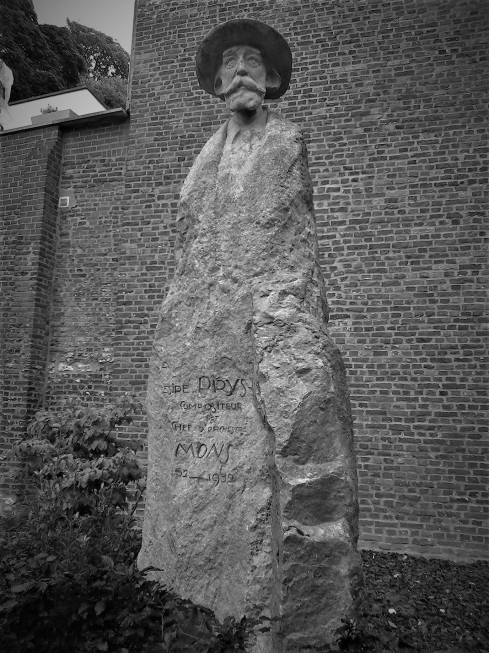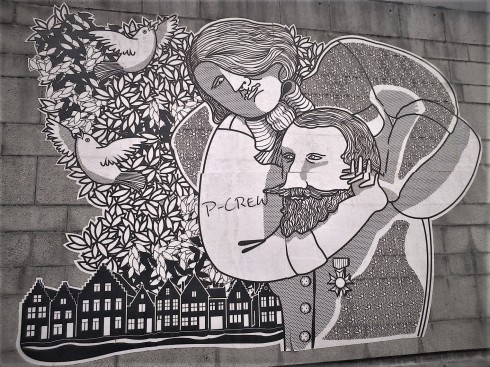Man, what a bold experiment, what a battering experience! Robbe-Grillet’s hyper-realist nouveau roman doesn’t make for comfortable reading. Given his choice of title, we can’t say he didn’t warn us. We could hardly expect total immersion in the mind of the “green-eyed monster” to be easy. In any case, ARG isn’t interested in making things easy for us. The story, such as it is, is recounted by a disembodied consciousness, whom we must infer to be the wronged husband although he is entirely absent.
The unfaithful wife and the cuckolder exclude the unseen narrator from their conversations, even though they meet in his home. They discuss the novel they have both been reading, “a standard narrative of colonial life in Africa, with a description of a tornado, a native revolt and incidents at the club…”, the novel Robbe-Grillet could have written:
They have never made the slightest judgement as to the novel’s value, speaking instead of the scenes, events and characters as if they were real… Their discussions have never touched on the verisimilitude, the coherence or the quality of the narrative. On the other hand, they frequently blame the heroes for certain acts or characteristics, as they would in the case of mutual friends.
This passage seems to me a manifesto. You can feel ARG’s frustration with the “realist” novel and its readers’ expectations. The target of its ire remains in place. It feels painfully like eavesdropping on a book club meeting.
Like a stage drama, all of the “action” takes place in one location, at a farmhouse on a banana plantation somewhere in the tropics, switching only between the veranda, the bedroom, the office and the dining room. A limited range of props is used over and again – a hairbrush, the chairs on the veranda, a squashed centipede, a coffee pot, an ice bucket. Sound effects are repeated – the cries of small predators in the bush, the crickets’ nightly chorus, the hiss of a kerosene lamp… The cast is small – A…, Franck, the Boy, our cuckold-narrator. It’s an ensemble piece for small theatre, staged that we may home in on the narrator’s corrosive, disturbing, all-consuming obsession. If anyone has ever made you jealous, you’ll know how it can expand to fill your every waking moment. It’s the totality of the narrative here.
The novel is also an attempt to present the true nature of perception, the fractured nature of our binary vision, the role of the mind’s eye, the apparently irrelevant details that absorb our attention. I can’t help but be reminded of Picasso’s similar endeavours in paintings such as The Weeping Woman. And from these fragmented pieces, the reader must put together the narrative for him/herself. ARG is challenging the reader, fully involving him/her in his creation. There’s nothing passive here. It’s not a book club “good read”.
Are the narrator’s geometrical obsessions an attempt to impose order on a chaotic world, one that is spinning beyond his control? His senses are confused, overwhelmed. The crackling of the centipede’s mandibles becomes the crackling of the brush in A…’s hair, the crackling of flames in the bush from Franck’s crashed car… The accumulation of detail – geometry, sounds, objects – serves to build a version of reality as it is experienced as opposed to its expression in the vieux roman. It also signals a mind in the grip of obsession. Consider this:
The shiny black curls tremble on her shoulders as the pen advances. Although neither the arm nor the head seems disturbed by the slightest movement, the hair, more sensitive, captures the oscillations of the wrist, amplifies them and translates them into unexpected eddies which awaken reddish highlights in its moving mass.
The passage is unsettling. The narrator is spying on his wife in her bedroom through the slats of her bedroom window (a “jealousy window” in French, apparently). He spends much of the novel doing this. It is also extremely affecting. We feel the narrator’s adoration of this indifferent goddess, the wife to whom he is a mere absence.
A… then is an ellipse, something that must be circled around as an insect will fly around a kerosene lamp. The narrator is fatally drawn to A… He is an insect attracted to a nocturnal flame, in perpetual danger of self-destruction. He is weakened, unable to confront her with his suspicions, destined to move around her from the periphery. And this is his tragedy, every bit as moving in its way as the Moor’s original green-eyed monster.
None of the characters comes out of this well, except perhaps the serving boy. Jealousy is that parody song, Jilted John by Jilted John (a heteronym of comic genius, Graham Fellows). As John, the pathetic narrator sings, Oh she’s a slag and he’s a creep/She’s a tart, he’s very cheap… Indeed. I have read that Perec was dismissive of Robbe-Grillet’s novels. I’m surprised. The description of objects to tell the tale of a young couple’s disappointments is the exact method he employed in his early novella, Things. I’m not sure how many more novels with protagonist-as-unseen-voyeur I’d want to read, but I’m glad I read this one.

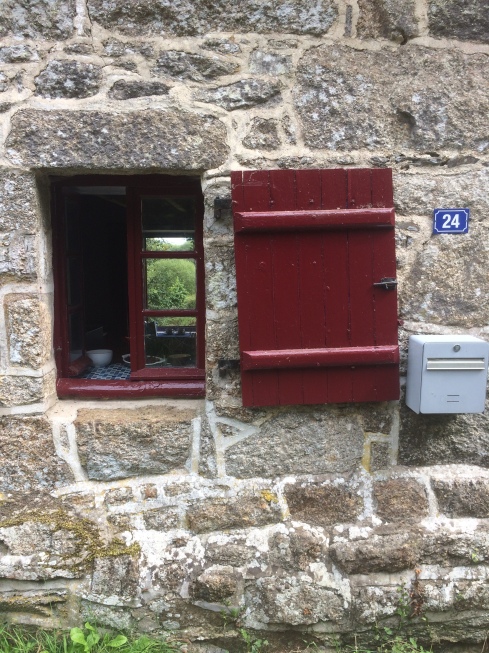

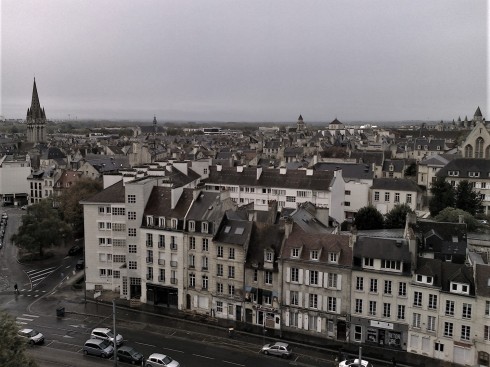
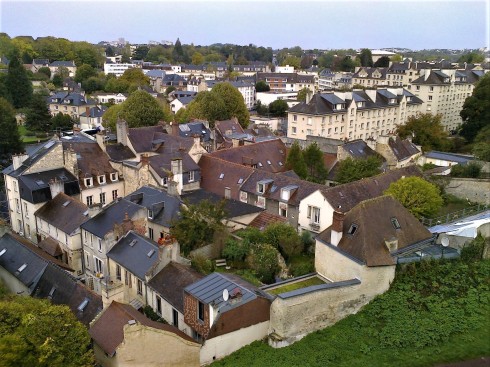

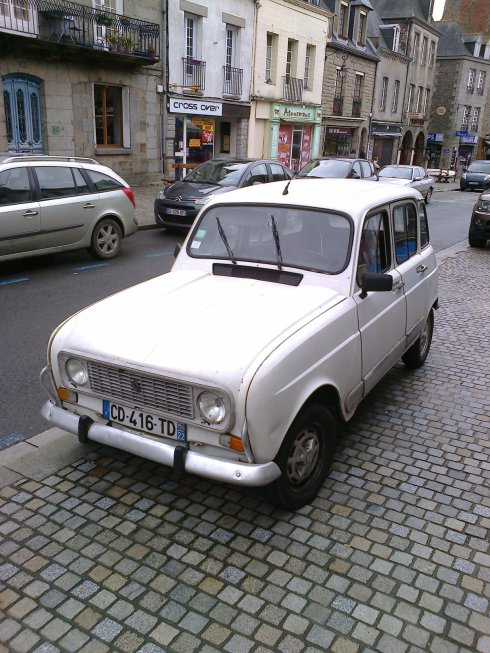
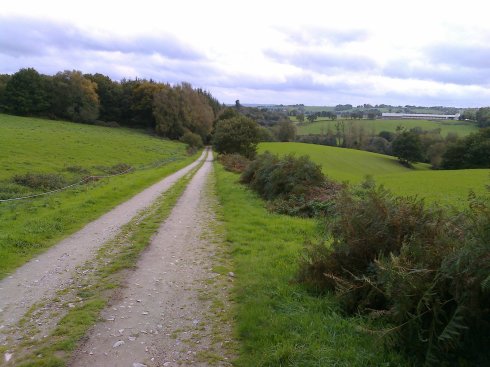

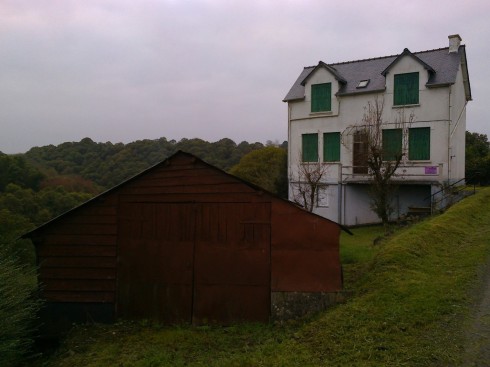
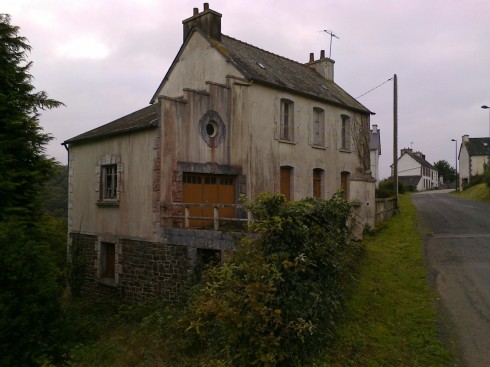










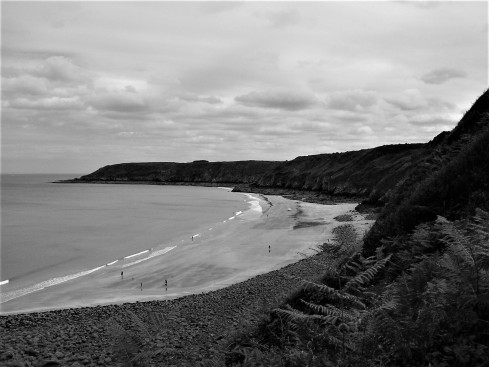


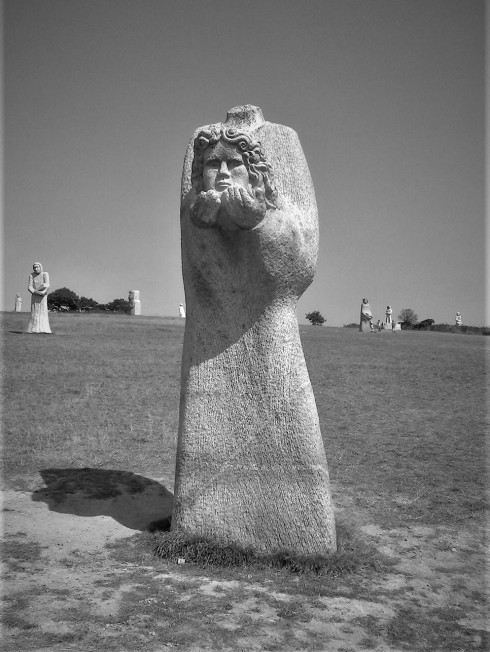
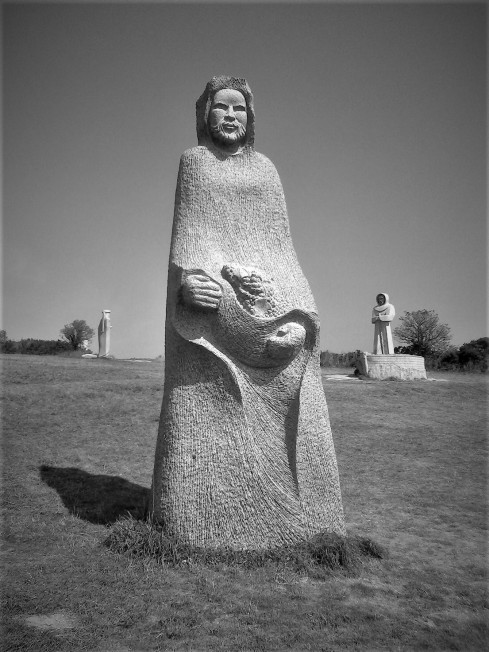
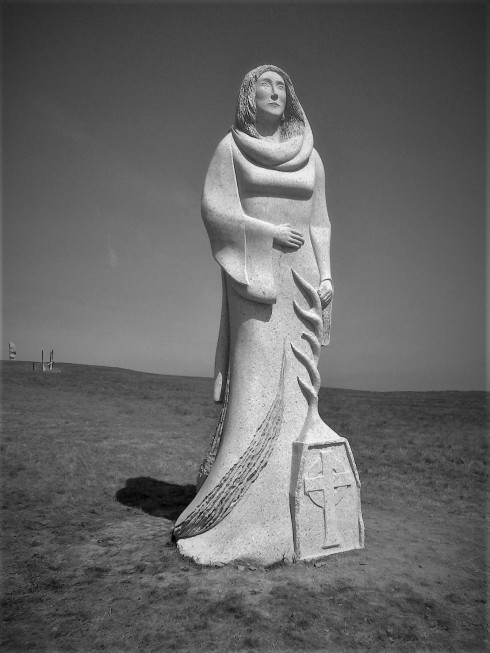
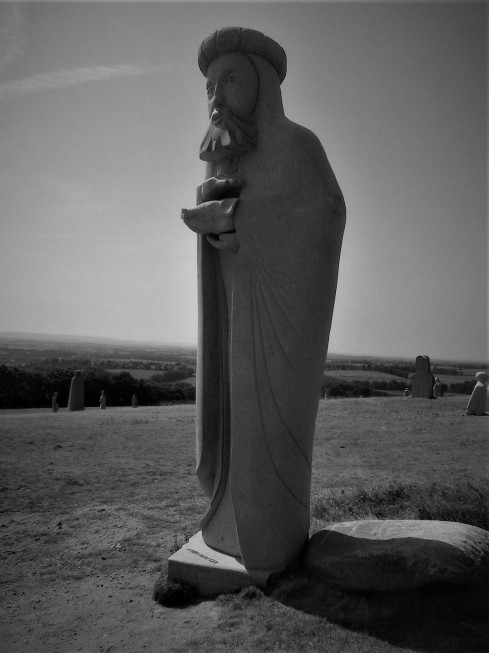
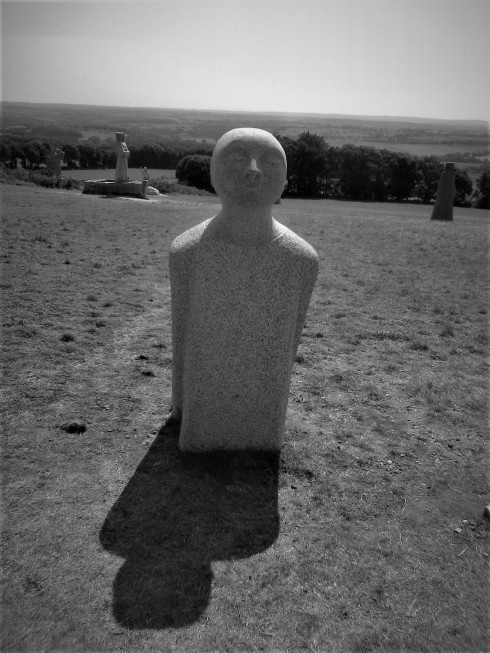
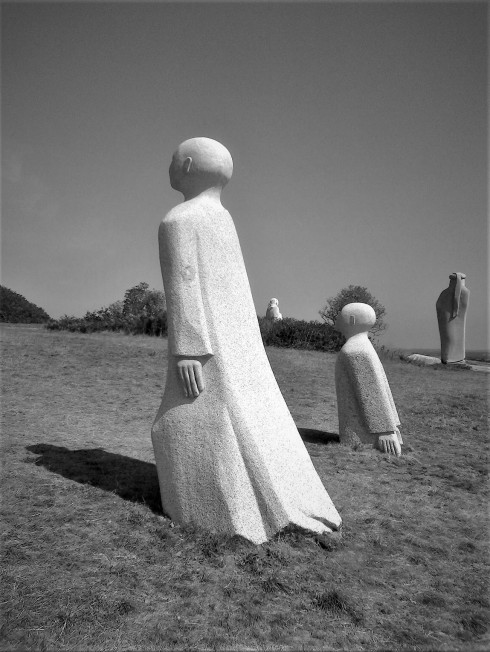
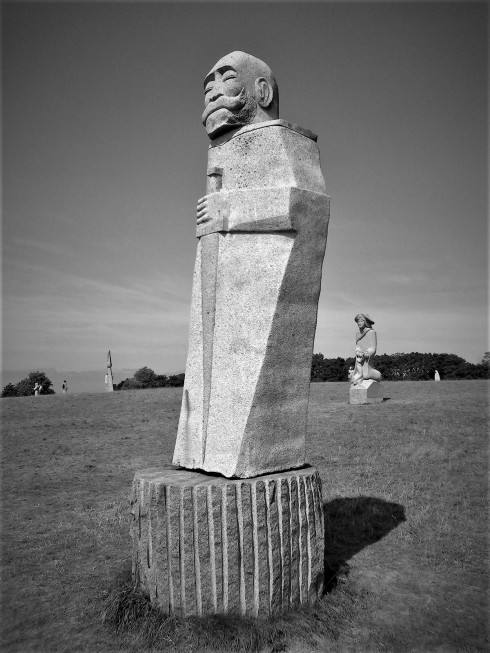
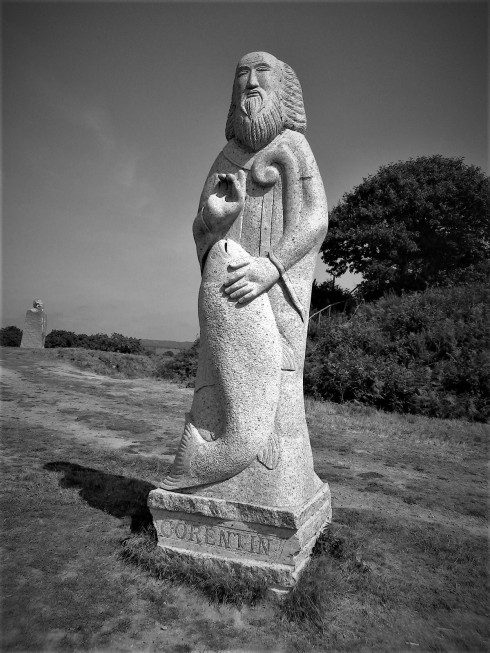
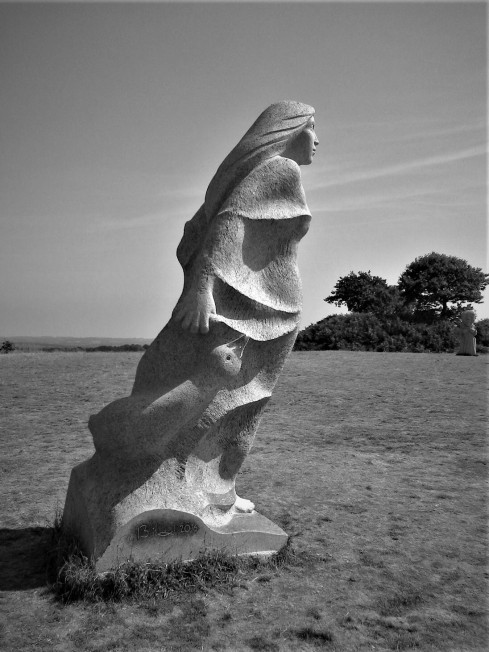
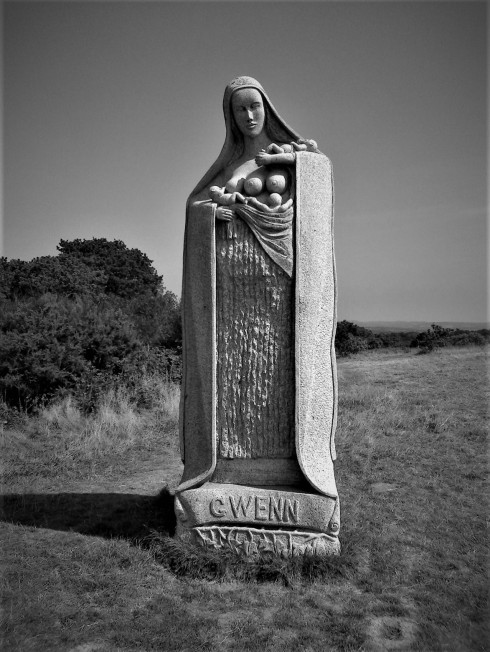
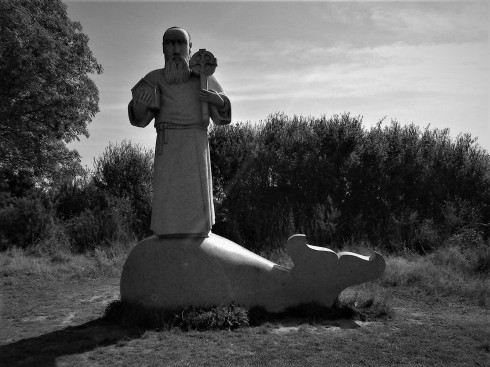
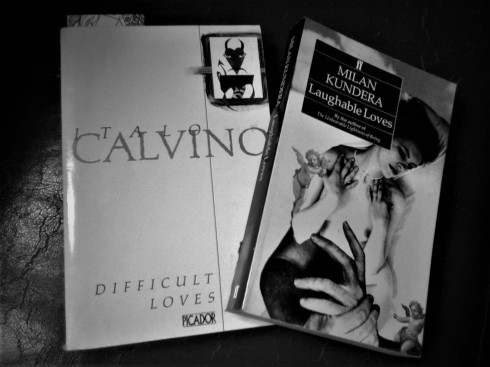

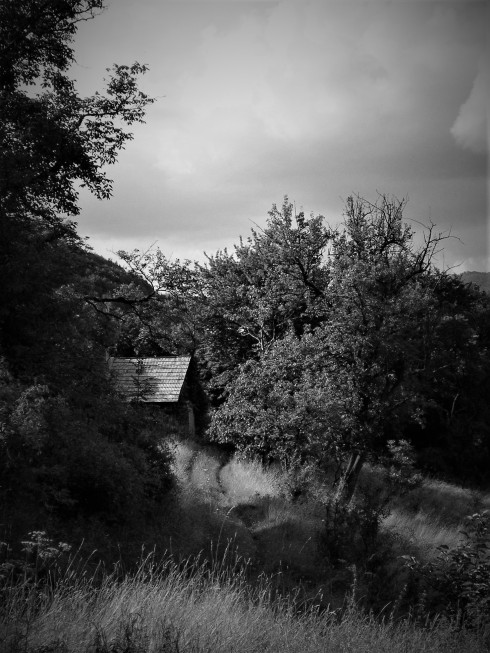

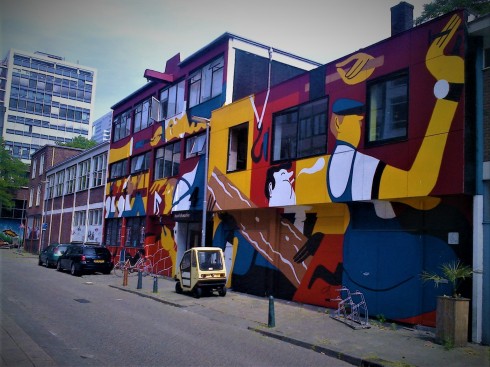
 PSR and Mari Biella 2017, images
PSR and Mari Biella 2017, images 